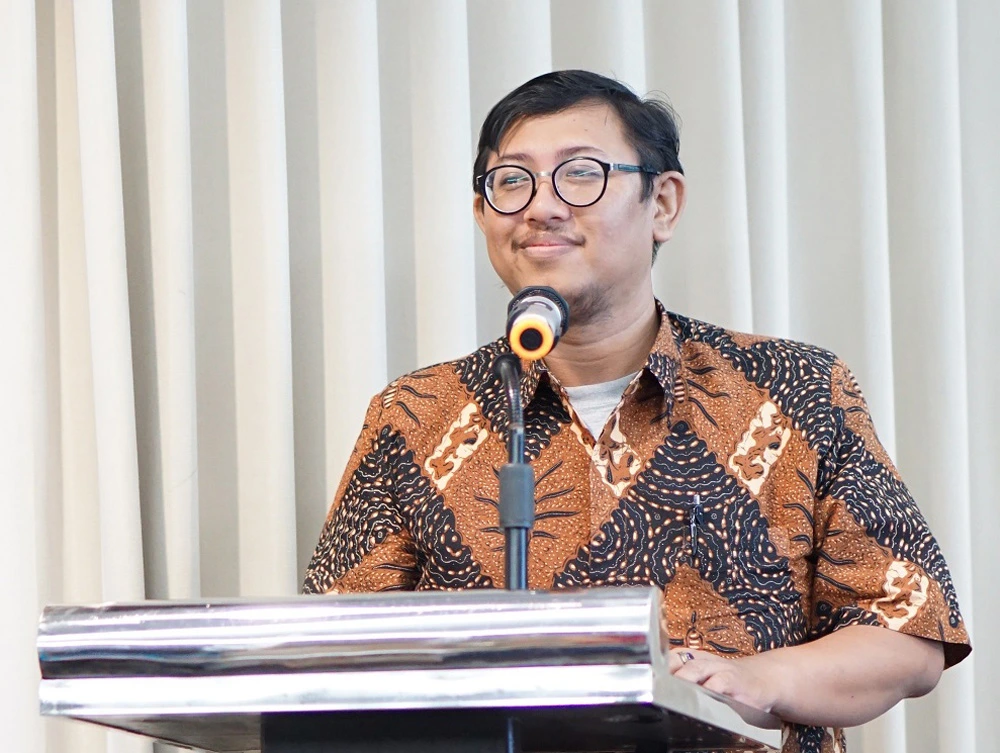UNAIR NEWS – The spread of HIV/AIDS (Human Immunodeficiency Virus/Acquired Immune Deficiency Syndrome) is on the rise once again. HIV is a virus that compromises the human immune system, leading to AIDS—a syndrome triggered by the immune system’s decline due to HIV infection.
From January to October 2024, Surabaya recorded 243 active cases of patients receiving antiretroviral therapy (ART). The majority of these cases are within the productive age group. Addressing the resurgence of HIV/AIDS cases, Dr. Agung Dwi Wahyu Widodo, M.Si., M.Ked.Klin., a lecturer in Immunology and Microbiology at the Faculty of Medicine, Universitas Airlangga (UNAIR), shared his insights.
In an interview with UNAIR NEWS, Dr. Widodo noted that drug use and unprotected sexual activity are primary contributors to the high rate of HIV/AIDS in the working-age demographic. “One significant factor is the spread of the virus among drug users, especially through shared needles. Additionally, HIV can spread through unprotected sex,” Dr. Widodo explained on Friday, November 8, 2024.
Microbiological and immunological insights
Dr. Widodo further elaborated on HIV-1, describing it as a highly transmissible virus. “From a microbiological perspective, HIV-1 is a potent retrovirus with a high transmission rate, making it easily spreadable, including here in Indonesia,” he stated.

From an immunological standpoint, Dr. Widodo explained that HIV/AIDS targets CD4 cells within the immune system, gradually weakening immune defenses. He also noted that the immune response to HIV infection is generally consistent across age groups, including working-age adults.
HIV/AIDS transmission occurs through contact with infected bodily fluids. Therefore, Dr. Widodo pointed to drug use and casual sex as the primary modes of HIV/AIDS transmission among people in their productive years. “Drug use is extremely risky. Users tend to use morphine derivatives, which can accelerate the growth of HIV. Additionally, they share needles, increasing transmission risk,” he said.
He also highlighted that, once transmitted, HIV mutates and undergoes glycosylation—processes that allow it to survive in the body, evade immune responses, and remain transmissible in various conditions. “This is critical, as it underscores the dangerous spread within the productive age group,” he explained.
Prevention measures
To prevent the surge of HIV/AIDS cases in the working-age group, Dr. Widodo advocated for early prevention strategies. He emphasized the importance of early education and accurate information to raise awareness of HIV/AIDS prevention. “Prevention efforts should focus on Gen Z, college students, and individuals of working age. We can achieve this through the ABC campaign,” he said.
The ABC campaign, Dr. Widodo continued, promotes abstinence, encouraging individuals—particularly the unmarried—to avoid sexual activity; “be faithful,” which stresses fidelity in relationships; and “condom use.” “Promoting condom use does not mean endorsing casual sex,” he concluded.
Author: Tsaqifa Farhana W
Editor: Yulia Rohmawati









